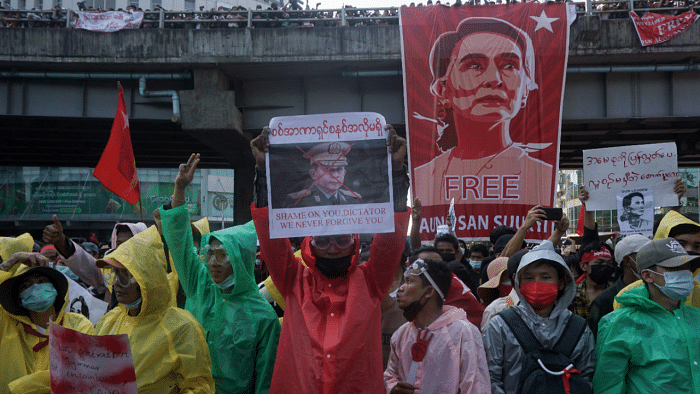
Myanmar's shadow government, formed by opponents of military rule, called for a revolt against the junta on Tuesday, setting out a strategy that included action by armed militias and ethnic forces and urging bureaucrats to leave their posts.
Duwa Lashi La, the acting president of the National Unity Government, said in a speech that the shadow government, which is made up of members in exile or in hiding, was declaring a state of emergency.
Myanmar's military toppled the elected government of Aung San Suu Kyi on Feb. 1, triggering a wave of protests by pro-democracy supporters, and hundreds of deaths as security forces tried to quell the demonstrations.
Some opponents of military rule have formed armed groups, under the banner of the People's Defence Forces, and have forged alliances with some ethnic militias that have long seen Myanmar's army as their enemy.
Declaring it was launching a "defensive war", Duwa Lashi La called for a "revolt against the rule of the military terrorists led by Min Aung Hlaing in every corner of the country."
Myanmar's military ruler Min Aung Hlaing last month took on the role of prime minister in a newly formed caretaker government and pledged to hold new elections by 2023.
The junta has itself branded the NUG and People's Defence Forces as terrorist groups.
Military-appointed administrators should "immediately leave your positions", Duwa Lashi La said in his 14-point speech, in which he urged members of the security forces to join them and for ethnic forces in border areas to attack the military.
Soon after February's coup, a civil disobedience movement was set up in a bid to undermine military rule.
Hastily formed militias have also been involved in regular skirmishes with the army though often appear to operate independently, while it is also unclear how much coordination there is among ethnic forces that have been fighting the army on and off for decades.
The Association of Southeast Asian Nations (ASEAN) has been leading diplomatic efforts to end the violence and open a dialogue between the military rulers and their opponents.
ASEAN's envoy to Myanmar, Erywan Yusof, said in an interview with Kyodo news agency that the military had accepted his proposal for a ceasefire until the end of the year to ensure distribution of humanitarian aid.
A pro-democracy activist and another member of the NUG said the junta could not be trusted to honour such a deal.
A military spokesman did not answer calls from Reuters to seek comment on the reported ceasefire or the speech by the NUG.